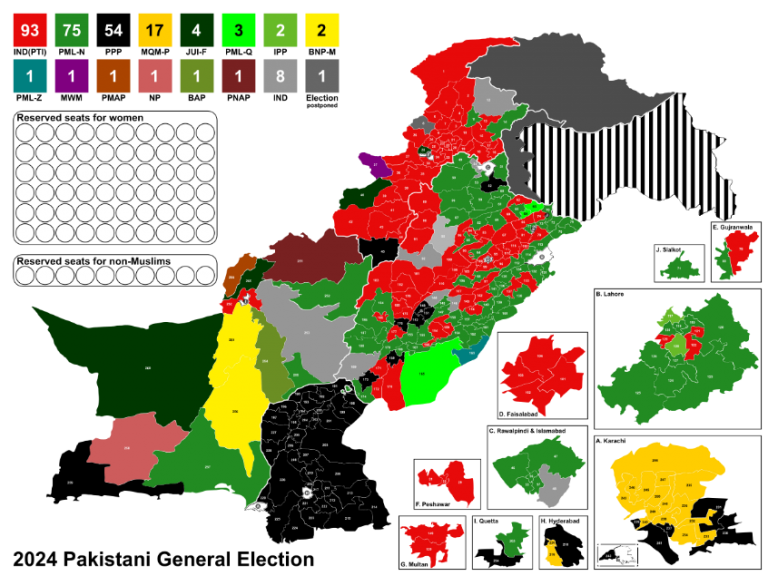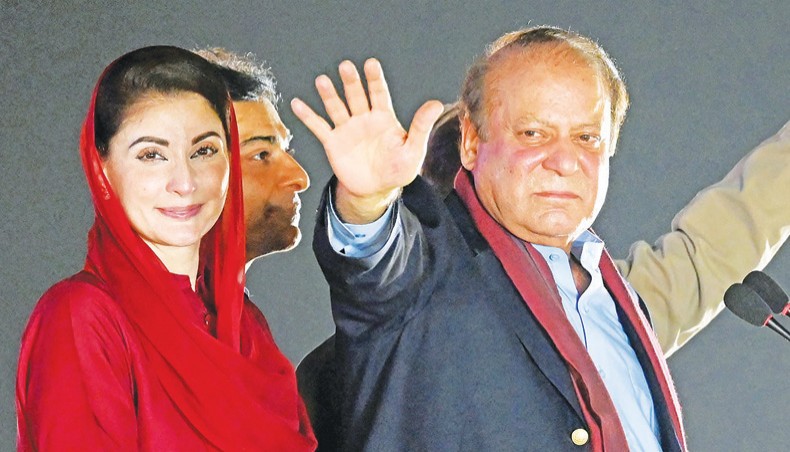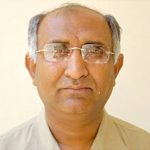
The post-election scenario in Pakistan is very uncertain and tense, as the main parties have accused each other of rigging and fraud
Prof Dr. Abdullah G Arijo
The post-election scenario in Pakistan is very uncertain and tense, as the main parties have accused each other of rigging and fraud. The reality behind the rigging allegations is hard to verify, as there have been reports of irregularities, delays, and violence in the voting and counting process. The problem of government formation is also complicated, as no party has won a clear majority and will need to form a coalition with other parties or independent candidates. Here is a summary of the situation:
The PTI, led by jailed former Prime Minister Imran Khan, has emerged as the largest party with 93 seats, which indeed did not contest the polls as a party but fielded its candidates as ‘Independents’, but it is still short of the 134 needed for a simple majority. The PTI candidates had to run as independents, as the party was barred from using its cricket bat symbol by the Supreme Court. The PTI has claimed victory and accused the PML-N of rigging the election.
The PML-N, led by Shahbaz Sharif, the brother of former Prime Minister Nawaz Sharif, has secured 78 seats and is expected to gain more support from independent candidates. The PML-N is seen as having the backing of the powerful army, but it did not perform as well as expected. The PML-N has rejected the results and alleged massive vote-rigging by the PTI and the army.

The PPP, led by Bilawal Bhutto Zardari, the son of former Prime Minister Benazir Bhutto, has won 54 seats and is in a position to play kingmaker in the coalition talks. The PPP has also raised concerns over the transparency and credibility of the election.
Also read: New setup in sight but rocky road ahead for Pakistan’s new government
The other parties and independent candidates have won 40 seats, and their role in the government formation will depend on their alliances and negotiations with the main parties.
The post-election crisis has raised questions about the stability and legitimacy of the next government, as well as the role of the army and the judiciary in the political process. The international community, especially the US and the UK, have also expressed their concerns over the election outcome and its implications for the region.
There have been many allegations of election rigging in Pakistan, especially after the general election that took place on 8 February 2024. According to some reports, a senior official in Punjab province confessed to changing the results of independent candidates who were backed by Imran Khan’s party, PTI. PTI and other parties have also accused the military and the election commission of interfering in the election and favoring the PML-N and PPP parties. These claims have sparked protests across the country, where police have used tear gas and arrested some protesters. The election results are being challenged in the courts by PTI and other parties who say they have evidence of fraud and manipulation. The election has been described as the dirtiest in Pakistan’s history by some observers.
The Grand Democratic Alliance (GDA) is a coalition of opposition parties in Sindh that challenged the ruling Pakistan People’s Party (PPP) in the Feb 8, 2024 provincial elections. However, the GDA alleged that the elections were rigged and unfair, and announced a series of protests against the results. The GDA also claimed that it had the support of some other parties, such as the Pakistan Tehreek-e-Insaf (PTI) and the Jamaat-e-Islami (JI), who also expressed their reservations about the polls. The GDA demanded a re-election in Sindh under the supervision of the army and the judiciary.

The way forward for this situation is not clear, as there are conflicting claims and evidences from different sources
The PPP, on the other hand, denied the allegations of rigging and said that it had won a comfortable majority in Sindh with the mandate of the people. The PPP also accused the GDA of being a puppet of the establishment and trying to create instability in the province. The PPP said that it would not succumb to any pressure and would continue to serve the people of Sindh.
The controversy surrounding the rigging allegations of former Pindi commissioner Liaquat Ali Chattha is a serious issue that has raised questions about the credibility of the 2024 general elections in Pakistan. Chattha claimed that he had manipulated the election results in Rawalpindi division to favor 13 candidates who were losing, under the pressure of the chief election commissioner and the chief justice. He also announced his resignation and demanded to be punished for his crime. However, the Election Commission of Pakistan (ECP) refuted his allegations and formed a committee to probe his revelations. The caretaker government also transferred him and asked him to report to the Service and General Administration Department. Later, he was arrested and shifted to an unknown location.
Also read: Pakistan’s ‘old guards’ set to form new coalition government amid hung parliament
The way forward for this situation is not clear, as there are conflicting claims and evidences from different sources. Some possible steps that could be taken are:
The ECP should conduct a thorough and transparent investigation into the rigging allegations and make the findings public. If any evidence of tampering is found, the ECP should take appropriate action to ensure the validity of the election results and the accountability of the culprits.
The judiciary should also play its role in ensuring the rule of law and the protection of the rights of the voters and the candidates. The judiciary should hear the petitions and complaints filed by the aggrieved parties and deliver justice in a timely manner.
The political parties and the civil society should also cooperate with the authorities and refrain from violence and agitation. They should respect the democratic process and the verdict of the people. They should also work together to strengthen the electoral system and the democratic institutions in the country.
__________________
 Prof. (R) Dr. Abdullah G. Arijo is Advisor and Visiting Professor, SBBUVAS, Sakrand, Pakistan. He is Ex-Chairman, Department of Parasitology, Sindh Agriculture University and Ex-Advisor Academics & P&D to Vice Chancellor SAU Tandojam
Prof. (R) Dr. Abdullah G. Arijo is Advisor and Visiting Professor, SBBUVAS, Sakrand, Pakistan. He is Ex-Chairman, Department of Parasitology, Sindh Agriculture University and Ex-Advisor Academics & P&D to Vice Chancellor SAU Tandojam
[…] Also read: RIGGING RUMOURS […]